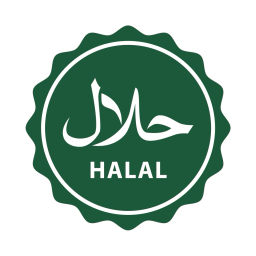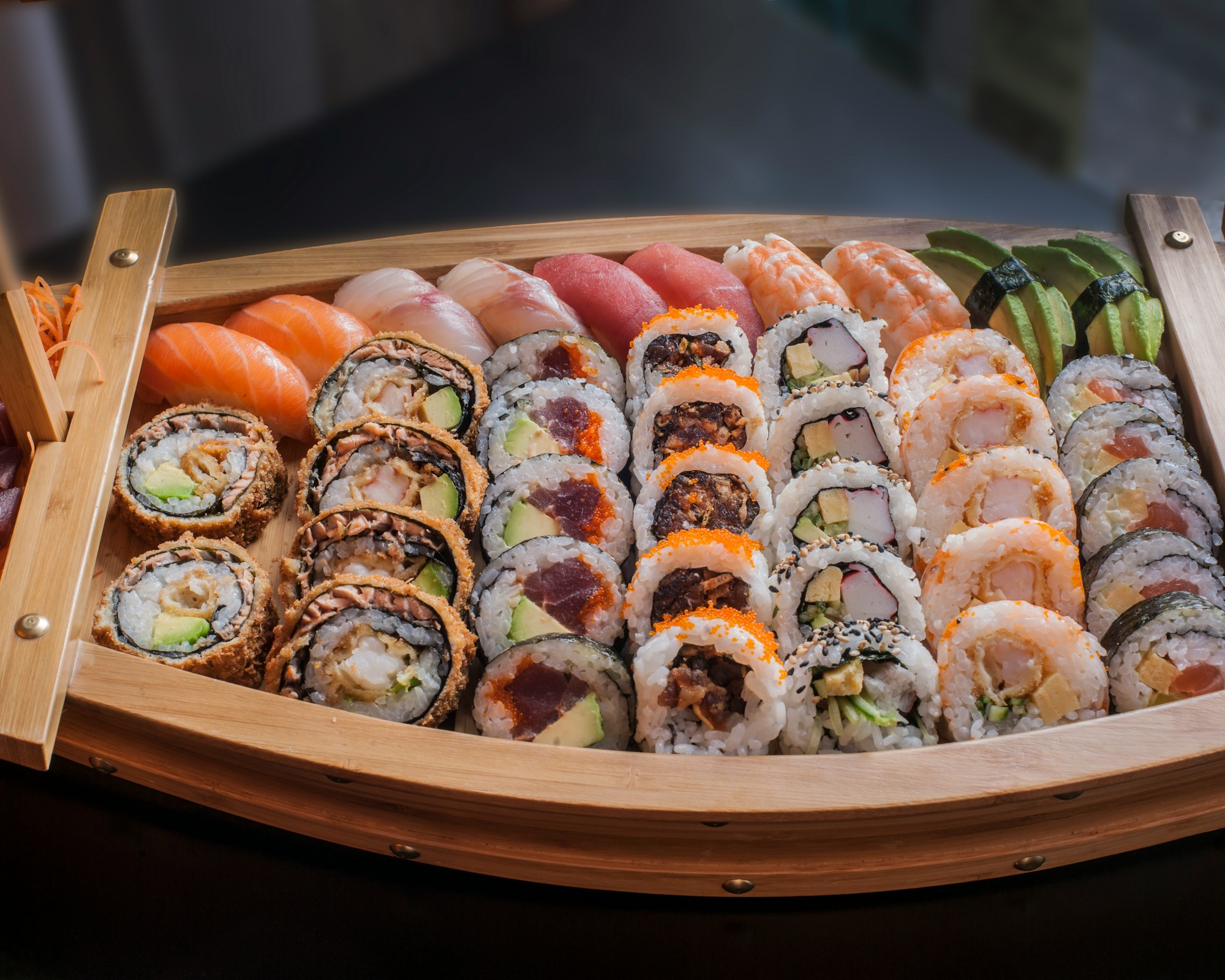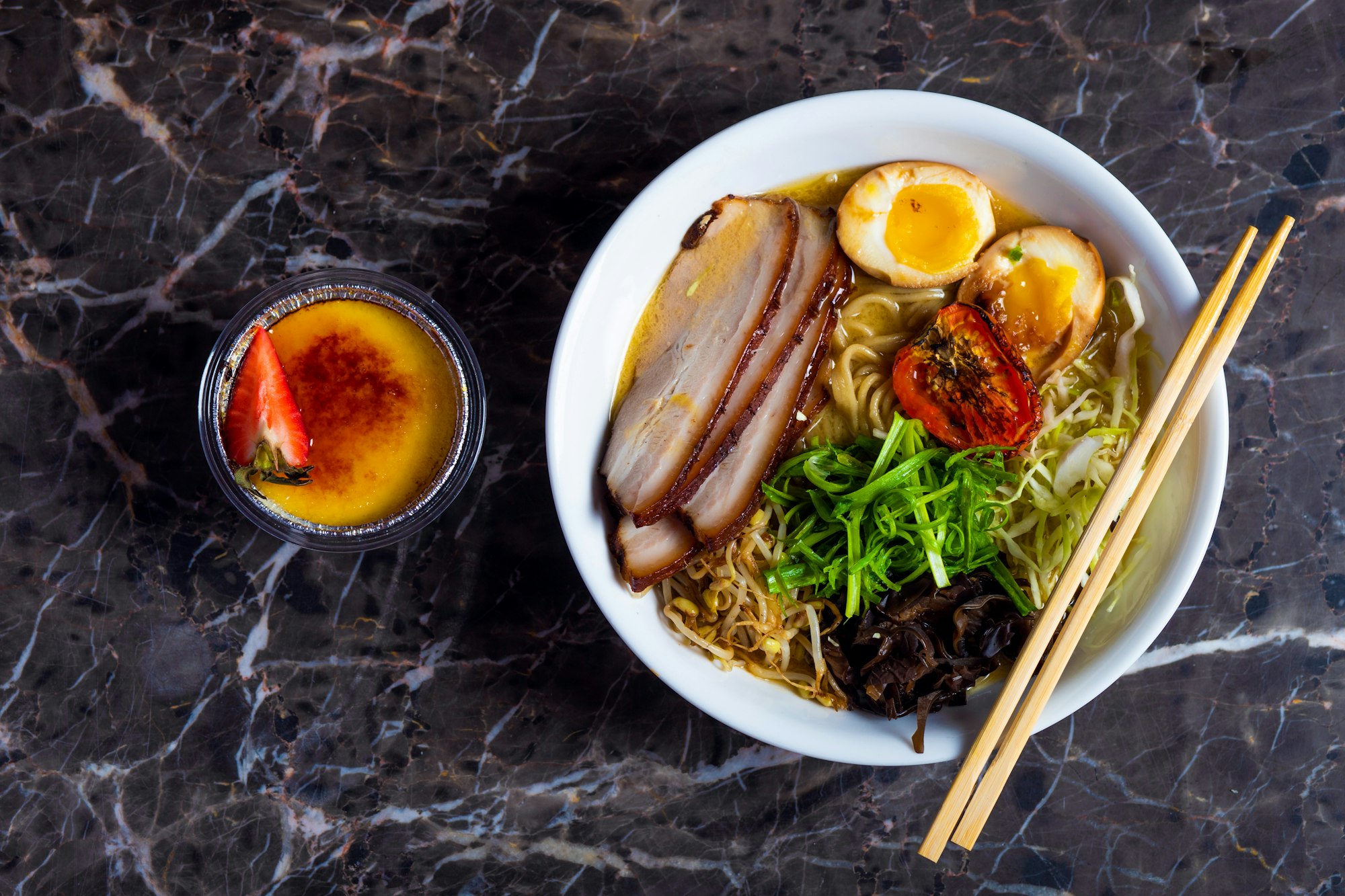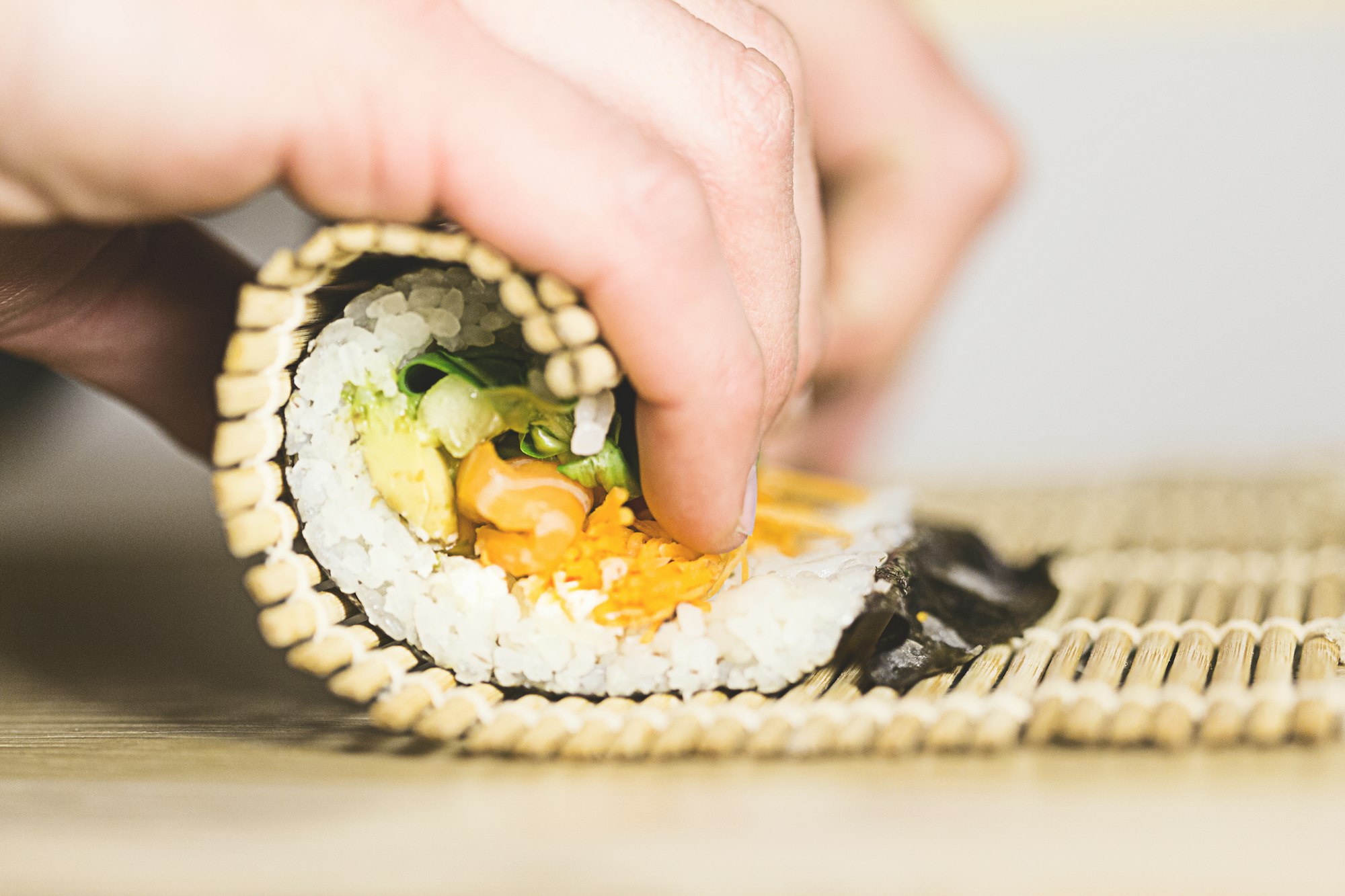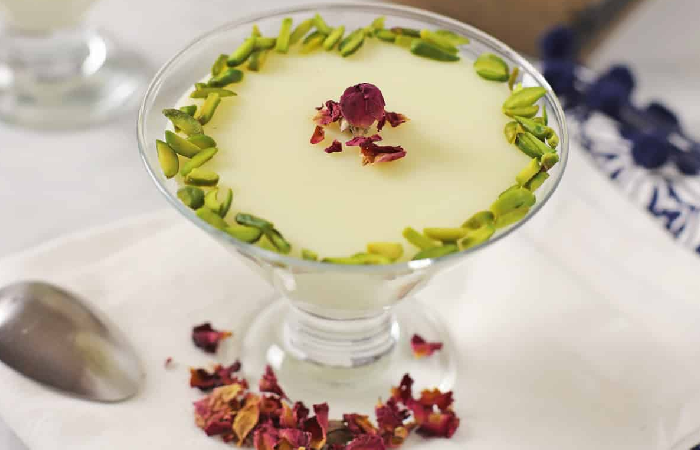Is Sushi Halal?
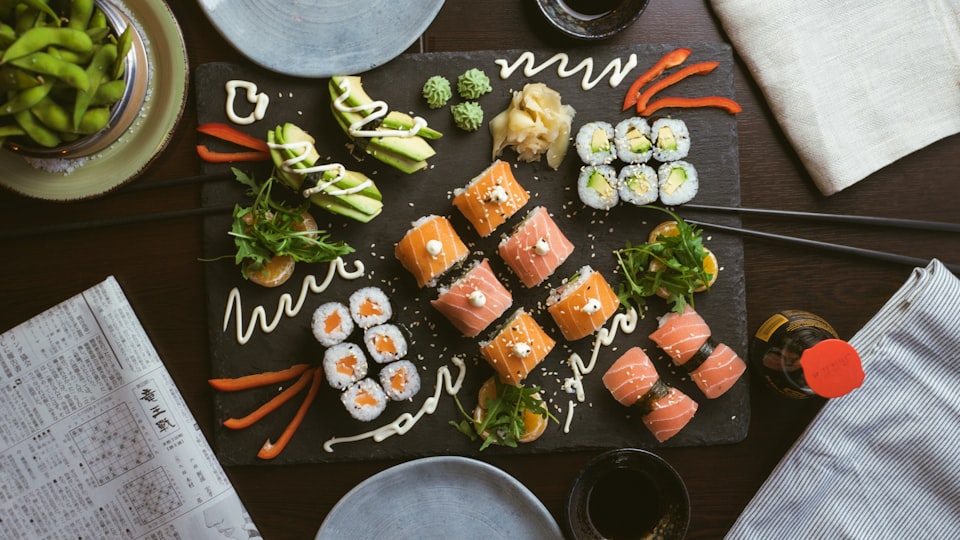
Food that complies with Islamic dietary regulations as outlined in the Quran is referred to as halal. "Halal" In Arabic means "permissible". Halal cuisine is normally thought of as healthy and nourishing. Its popularity is rising globally with the increase in Muslim population.
There are several organizations that provide halal certification for food. These groups make sure the food satisfies all legal criteria in Islam. It's crucial to check for a respected organization's certification seal while buying halal food.
Sushi And Its Global Popularity.
Sushi is a unique dish in the wide realm of culinary delights. Due to its distinctive flavor and texture combination, this traditional Japanese dish has become extremely popular all over the world. But "Is Sushi Halal?" becomes a concern for Muslims who follow the Halal dietary regulations.
It is vital for Muslims to comprehend the Halal classification of different food items. It gives us the peace of mind to enjoy a wide range of meals from many cultures while also guaranteeing that we abide by their religious dietary restrictions.
Sushi is a dish comprised of rice that has been vinegared and is frequently served with a variety of toppings, including vegetables, cooked or raw fish, and occasionally tropical fruits. Not the fish or any other toppings or fillings, but the vinegared rice is what is truly referred to as "sushi."
Exploring Whether Sushi Fits Into A Halal Diet.
This post will define sushi, discuss typical components, and discuss how these items fit into Islamic dietary guidelines. Along with talking about well-known sushi brands and their halal certification, we'll also offer advice on how to make sure your sushi is halal.
This guide is for anyone who enjoys sushi and wants to know if the meal is Halal, or who is just interested in learning more about the relationship between food, culture, and religion. Now, let's examine the world of sushi from the perspective of halal eating regulations.
Understanding Halal Dietary Laws
Islamic beliefs gave rise to the dietary regulation known as halal, which means "lawful or permitted." Foods that are not halal, on the other hand, are regarded as haram, or "not permitted." since there are already many culturally diverse locations in the world and more will likely arise in the future.
Both halal and kosher diets prohibit some foods. meals containing blood, alcohol and meals made with it, as well as some meats, such as pork, the majority of reptiles, raptors, and predatory animals, are forbidden in halal diets.
The Concept Of Halal In Islam.
The primary motivation behind the Islamic faith's adherence to Halal dietary standards is to obey divine commands.
O you that have faith! Consume the good things that We have given you and give thanks to God, if it is He whom you worship.
Quran II: 172
Muslims are permitted to consume halal foods and beverages in accordance with Islamic law, which outlines which foods are permitted and how they must be cooked.
The Types Of Food And Practices That Are Considered Halal.
Ingredients used in halal food cannot come from sources that are prohibited. Additionally necessary is the use of utensils and equipment free of haram substances.
- Food items that are prohibited are blood, wine, and pork other than these all food items are halal.
- Foods and beverages that might contain alcohol are prohibited , rest of the drinks are halal.
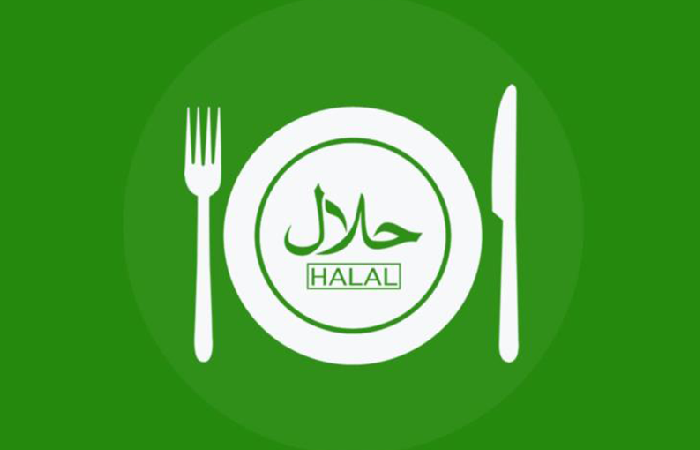
- Animals must be slaughtered following certain rules only then will it be considered zabiha Halal.
- These include treating the animals properly and chanting the name of Allah during the process of slaughtering.
- Zabiha meat is halal.
- Certain type of seafood is halal.
Importance Of Halal Certification.
Halal certification is an assurance that food or products were produced and handled in accordance with Islamic dietary regulations.
-
These regulations are a fundamental element of the faith and lifestyle of millions of Muslims around the world. Halal certification gives them the assurance that the food they eat meets their religious criteria.
-
Halal certification is important not only for individuals and their faith, but it is also critical for businesses. It provides access to a big market of Muslim customers who actively seek Halal-certified items.
-
It is a symbol of quality and trust not only for Muslims, but for anybody who values food safety and ethical food production techniques.
-
Halal certification means respecting people's religious beliefs and dietary preferences. Also ensuring product quality and market access.
-
It serves as a link between faith and business. This gives everyone the confidence to eat their favorite foods with ease.
The Basic Components of Sushi
Sushi is a traditional Japanese cuisine that consists of vinegared rice, fish, and vegetables. Nigiri, maki, sashimi, and temaki are among of the ways it is prepared.
Common Ingredients In Sushi:
Rice: Sushi rice is prepared with short-grain Japanese rice. The rice is seasoned with vinegar, sugar, and salt. It should be slightly sticky and sweet.
Nori: Edible dried seaweed sheets that are often black or dark green and are used to wrap sushi rolls or hand-pressed nigiri. Nori brings a somewhat salty, umami flavor and texture to the dish.
Seafood: Tuna, salmon, whitefish, eel, squid, shrimp, or scallops are examples of raw or smoked seafood used in sushi.
Vegetables: Improve the flavor, texture, and appearance of sushi with veggies. Cucumber, avocado, carrot, pickled ginger (gari), and daikon radish are also popular choices.
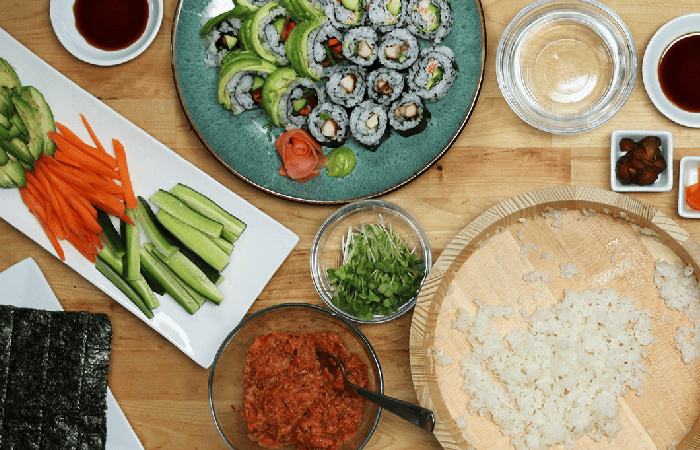
The Halal Status Of Each Component
Rice is a plant-based ingredient that is generally regarded as halal by Muslims. Short-grain Japanese rice, the classic sushi rice, is specifically halal.
Nori, the edible seaweed sheet used to wrap sushi, is also halal. It's made of dried seaweed and has no non-halal components.
Seafood: In Islam, most seafood, including fish, shrimp, and crab, is considered halal. Certain types of seafood, such as shellfish or fish without scales, may be considered haram (forbidden) by some Islamic scholars.
Vegetables: The majority of veggies usually used in sushi, including as cucumber, avocado, and carrot, are halal. However, it is critical to ensure that they are not contaminated with any non-halal substances throughout the manufacturing process.
Wasabi and Soy Sauce: The use of wasabi and soy sauce in sushi can create questions about the halal status of the ingredients. Wasabi is frequently prepared with vinegar, which may include levels of alcohol.
Soy sauce is made from fermented soybeans, wheat, and salt, and some products may contain traces of alcohol or additives that are not halal.
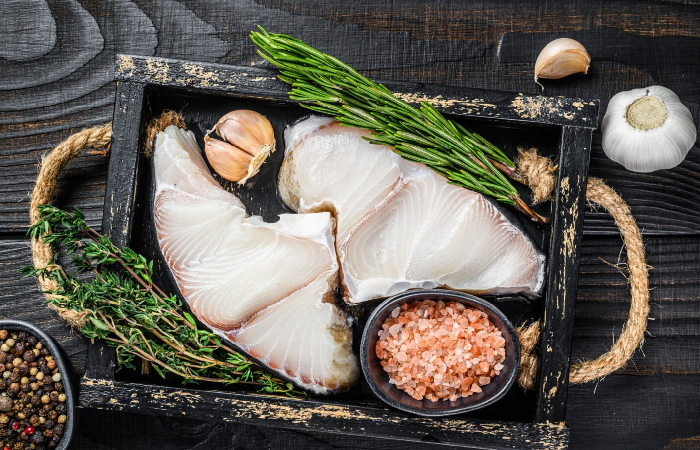
Common Issues with Sushi and Halal Compliance
The answer to whether sushi is Halal or Haram is not simple, as it relies on a number of criteria, including the products used and the method of preparation. When attempting to ensure halal compliance, certain frequent challenges may develop.
Potential Non-Halal Ingredients in Sushi:
Not all sushi ingredients are halal. Some restaurants may utilize non-halal fish and seafood, as well as non-halal soy sauce. Before eating your sushi, make sure the ingredients are halal.
Halal slaughter is a prescribed way of slaughtering animals in Islam. The meat is not deemed halal if the animal is not slaughtered correctly. Some sushi restaurants may use uncooked meat.
Alcohol In Vinegar Used For Sushi Rice
Alcohol is present in some forms of sushi, such as those cooked with mirin, a sweet rice wine. Because alcohol is not halal, you should avoid certain varieties of sushi if you are concerned about halal compliance.
Cross-contamination With Non-Halal Ingredients
Sushi restaurants frequently cook both halal and non-halal sushi. Cross-contamination is possible if the two types of sushi are not made and stored separately. This can happen if the same tools are used for different types of sushi, or if the sushi is stored in the same containers.

Cross-contamination may occur if the sushi is cooked using the same utensils or in the same area as Haram foods, such as pig or non-Halal meats.
Use Of Non-Halal Sauces And Additives
Wasabi is a spicy condiment made from the horseradish plant that is traditionally served with sushi in tiny mounds. It imparts a strong, pungent flavor that contrasts with the delicate flavors of fish and rice. It is frequently prepared with vinegar, which contains traces of alcohol.
Fermented soybeans, wheat, and salt are used to make soy sauce. It is used to enhance the flavors of sushi by dipping the sushi piece into it before eating. Some brands may contain traces of alcohol or additives that are not halal.
Sushi Varieties and Halal Concerns
Different types of sushi:
Sushi evolved from a way of preserving fish centuries ago into an elegant, one-of-a-kind dining experience, with many distinct types of sushi created over time. To make dried fish last longer, it was originally sandwiched between two pieces of vinegared rice. Later, nori (seaweed) was added to keep one's fingers from becoming sticky.
Sushi comes in a variety of flavors, including:
Nigiri: Nigiri is a type of sushi that consists of a raw fish or seafood slice on a mound of vinegared rice. Tuna, salmon, and shrimp are all common nigiri options.
Maki: When most people think of sushi, they generally think of Maki, or rolled sushi. It's prepared by placing vinegared rice on a sheet of seaweed (nori), stuffing it with different toppings like fish or veggies, and wrapping it all up into a cylindrical shape with a bamboo mat. After then, the roll is divided into bite-sized pieces.
Sashimi: While not strictly sushi (since it does not contain vinegared rice), sashimi is frequently served in sushi restaurants. Sashimi is a Japanese dish that consists of thin slices of raw fish or shellfish eaten without rice.
Chirashi: Chirashi, also known as dispersed sushi, is a dish of vinegared rice with various raw fish and vegetables on top.
Inari: is a form of sushi that consists of a pocket of fried tofu filled with sushi rice. It's a sweet and savory delight that's unlike any other form of sushi.
Sushi Temaki (temaki-zushi): Hand-roll is another name for temaki sushi. This is a seaweed-wrapped cone of sushi rice, seafood, and veggies. It tastes a lot like maki.
Maki Shikai: A beautiful and very artistic kind of maki sushi that is frequently designed to showcase the itamae's talents because to the complicated layering of ingredients. This style of roll is becoming more popular in the United States.
Sushi Ingredients That Conflict With Halal Standards
Sushi and Mirin
Sushi rice is traditionally created by combining cooked short-grain rice with rice vinegar, sugar, and salt. These are all Halal components. However, as previously stated, the addition of mirin to season the rice would not be considered Halal due to the presence of alcohol.
Seafood and Fish
Most fish and seafood are Halal in Islam, and they are the most commonly used items in sushi. Tuna, salmon, shrimp, and crab are examples. Certain types of seafood, such as shellfish or fish without scales, are considered Haram by some Islamic scholars.
Sake and Sushi
Sake is a type of Japanese alcoholic beverage that is occasionally paired with sushi. It is vital to note, however, that alcohol is not regarded halal in Islam. As a result, Muslims should avoid drinking sake with their sushi.
Crab Stick
Imitation crab, often known as crab stick, is a popular ingredient in sushi. It's usually made with fish paste and additional seasonings.
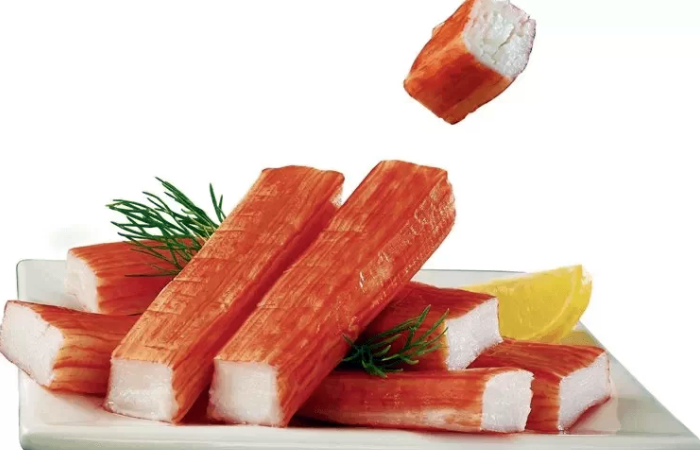
While the fish used in imitation crab is normally Halal, some may contain non-Halal additions or flavorings. Always read the labels and look for Halal certification.
The unagi (eel)
Unagi, or eel, is a popular sushi element. While eel is a species of fish and is generally considered Halal, it is frequently served with a sweet sauce including mirin or sake. The unagi would not be Halal if the sauce contained alcohol.
Uni Sushi:
The term "sea urchin" refers to various species of spiny marine creatures that are usually spherical and can be found all over the world.
Scholars dispute on whether sea urchins are halal. Some scholars feel that sea urchins are not halal since they are considered vermin.
Abalone Sushi:
Abalone sushi, also known as awabi sushi, is a form of sushi made from fresh abalone, a marine snail renowned for its delicate flavor and firm texture.
Although abalone is usually served raw in sushi, it can also be cooked or boiled. Abalone is considered haram by some islamic scholors.
The Role of the Sushi Chef and Halal Preparation
Sushi chefs play an important part in Halal food preparation. The chef is responsible in the Halal culinary sector for adhering to Islamic dietary requirements and ensuring that every meal served is prepared in accordance with these principles. This involves the selection of ingredients, cooking procedures, and general food management.
The Importance Of A Knowledgeable Sushi Chef
-
Sushi chefs must be familiar with Halal ingredients and use only permitted foods in their creations.
-
Sushi chefs' cooking procedures must also adhere to Halal guidelines. This includes avoiding any methods that entail the use of alcohol or pork products.
-
Halal sushi chefs, for example, would not cook using mirin, a Japanese rice wine. They would instead use a Halal equivalent, such as rice vinegar.
-
Chefs would not use the same utensils or gloves to handle non-Halal cuisine as they would for Halal food.
-
Finally, display the meal in an appealing manner while avoiding activities that may insult Muslim guests. Halal sushi chefs, for example, would never serve sushi alongside non-Halal foods on the same dish.
Preparation Methods Can Affect Halal Status
Halal status might be affected by preparation procedures. Certain procedures can make food haram, or forbidden, according to Islamic dietary standards.
How to Avoid Halal Violations During Preparation:
-
Utensils, cutting boards, and storage areas must be kept separate for Halal and non-Halal products.
-
Halal food and non-Halal food should be prepared separately.
-
After using non-Halal food, thoroughly clean cutting boards, utensils, and storage areas.
-
To minimize confusion, carefully label Halal food.
-
Learn about Halal food preparation techniques.
-
If you have any questions, speak with a reputable Islamic expert.
-
You may help ensure that your food preparation procedures are Halal and that you are consuming food that is acceptable under Islamic law by following these instructions.
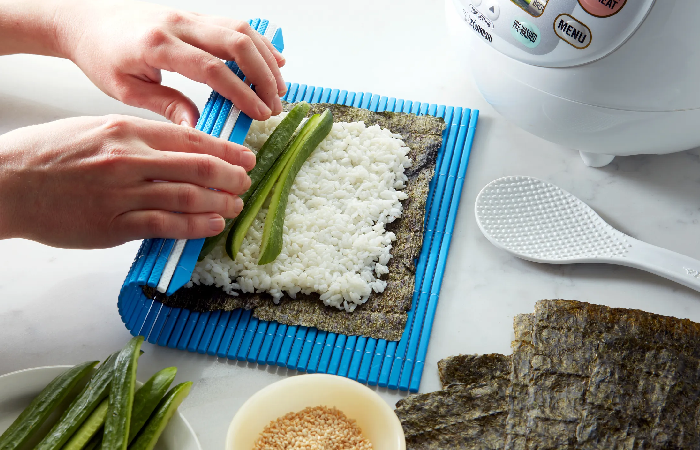
Questions to ask at a sushi restaurant regarding Halal compliance.
If you're at a restaurant and have questions about the Halal status of the sushi, don't be afraid to ask the chef or restaurant personnel. They should be able to provide information on both the ingredients as well as the cooking method.
Here are some Halal compliance questions to ask at a sushi restaurant:
- Do you have a Halal Certification?
A Halal certification from a recognized Islamic authority is required for many Halal establishments. This certification certifies that the restaurant adheres to Halal requirements in the preparation and procurement of its food.
- What Type of seafood do you use in your sushi?
Shrimp and lobster, for example, are considered Haram in Islam. Make sure to inquire about the varieties of seafood served at the restaurant. Also check that they are all Halal.
- Do you use any alcohol in the preparation of your sushi?
Alcohol is not permitted in Islam. Inquire with the restaurant if they use alcohol in their sushi cooking or preparation.
- Do you use Mirin or Sake in your sushi making?
Mirin and Sake are Japanese rice wines that are used in the cooking of sushi. These ingredients are not Halal and should be avoided in sushi.
- Do you use different utensils when preparing Halal and non-Halal food?
Cross-contamination has the potential to render Halal food haram. To avoid this risk, inquire whether the restaurant uses separate utensils for Halal and non-Halal food preparation.
- Does your restaurant serve pork products?
Pork is forbidden in Islam. Inquire if the restaurant has any pork items, even if they are not used in the production of sushi.
- Do you offer any vegetarian or vegan sushi?
Some Muslims practice vegetarianism or veganism. Inquire with the restaurant about vegetarian or vegan sushi selections that satisfy their dietary requirements.
- Ask the chef to explain the Halal sushi making process?
It is always a good idea to speak with the chef to gain a better knowledge of how Halal sushi is prepared.
By asking these questions, you can guarantee that you are having Halal sushi. You can also understand that the restaurant is following Islamic dietary requirements.
Finding Halal Sushi Restaurants
Here are some pointers for locating Halal sushi restaurants:
1. Look into Halal certifications.
Look for Halal-approved restaurants, such as those certified by the Islamic Food and Nutrition Council of America (IFANCA) or the Halal Food Authority (HFA). These organizations have stringent Halal food criteria and can assure that the restaurants they certify adhere to Islamic dietary guidelines.
2. Consult with local mosques or Islamic groups.
Mosques and Islamic organizations are frequently informed of Halal-friendly restaurants in their community. They might have a list of suggested eateries or know someone who can help you find Halal sushi options.
3. Look through online directories
Zabihah, Halal Maps, and Find Halal are just a few of the web directories that include Halal restraunts. These directories can be useful for locating Halal sushi restaurants in your area.
4. Make use of social media
Social networking can be an excellent resource for locating Halal sushi places. Look for restaurants with the hashtags #halalfood or #halalsushi. You can also acquire recommendations by joining Halal food groups on Facebook or other social media sites.
More Tips On How To Find Halal-Certified Sushi Restaurants
Here Are Some More Tips For Locating Halal Sushi Restaurants:
- Look for restaurants in Muslim-dominated neighborhoods.
- Look for Halal marks or labels on the menu.
- Inquire about the restaurant's alcohol policy. Alcohol is not served in many Halal eateries.
- Examine online reviews to learn what other customers think about the restaurant's Halal procedures.
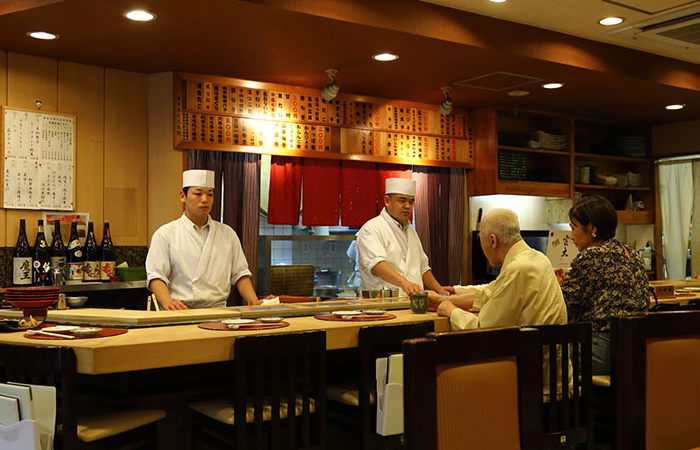
Apps That Help You Find Halal Restraunts
Halal Bites: is the most popular app for finding halal restaurants in your area. They have the most current and accurate database of halal restaurants.
Let's Halal: The App is intended to make it simple to locate Halal dining options in your area. You can browse a selection of Halal restaurants and cuisines with a few mouse clicks and customize your order to your satisfaction.
HalalTrip: This software is primarily designed for travelers. You can look through the travel guides to find some fantastic vacation discounts. And if you do decide to go on the vacation, you can simply utilize the restaurant search to locate some places to eat halal food.
Crave Halal: This is another free app that might help you find halal restaurants. This App's primary users are in the United States and the United Kingdom.
This app offers a list of halal eateries in your neighborhood after establishing your phone's location. The app may be used to not only identify local halal food corners, but also to explore halal food corners in a given place.
Beside locating eateries, you may also add some more. If you come across a halal restaurant that isn't included, you can add it to the database.
https://appadvice.com/app/cravehalal-find-halal-food/1215704022
Best Japanese Restaurants In America
Nobi Sushi is a prominent Japanese restaurant in New York City's Kips Bay neighborhood. It is well-known for its inventive and delectable sushi rolls, as well as conventional Japanese dishes. With traditional Asian décor, the restaurant has a warm and friendly ambiance.
It offers a wide selection of sushi rolls, including some that are distinctive and imaginative. The Kiss of Fire Roll, with spicy tuna and avocado inside, salmon, white tuna, jalapeño, tobiko, and spicy mayo on top, and the California Roll, with crabmeat, avocado, and cucumber, are two of the most popular rolls.
https://www.yelp.com/biz/nobi-sushi-new-york
Tempura means authentic Pakistani food with a Japanese twist, marinated and prepared in Houston with the greatest ingredients Pakistan has to offer.
Sooda Sushi & Lounge strives to provide their guests with the best taste and experience possible.
Halal Alternatives in Japanese Cuisine
Popular Japanese dishes that can be Halal:
Tempura is a Japanese dish made out of battered and deep-fried ingredients. Tempura restaurants offer a variety of vegetable alternatives, making it a particularly muslim-friendly meal.
Renkon (lotus root), sweet potato, eggplant, kabocha (pumpkin), mushrooms, asparagus, gobo (burdock root), broccoli, green peppers, and shiso (perilla) leaves are all popular components.
Shojin ryori began as a vegetarian diet for Buddhist monks who refrain from meat, fish, root vegetables, and alliums like as leeks, garlic, and onions. However, there is a strong emphasis on eating beans, fresh fruits, and vegetables, which are all considered safe for Muslims to consume.
Noodles can be a fine choice if you're attempting to eat halal in Japan.
There is one issue with ramen, or egg noodles, which are popular late-night snacks. The problem is caused by the broth, as one of the most popular is tonkotsu, which is made from boiled pork bone and hence not halal.
Other types of ramen, on the other hand, have vegetarian broth options, so go for these to be safe.
Mochi daifuku is a popular Japanese snack made of sticky rice dough and a sweet filling. They have a delicate texture and a thick but pleasant sweet flavor.
Many halal Japanese foods include mochi daifuku. However, we must caution you that some goods may contain animal gelatin. When purchasing these goodies, simply read the ingredient label carefully.
Warabi mochi: Warabi mochi is a very simple but utterly delectable Japanese delicacy. It's a jelly-like rice cake topped with toasted soybeans and sugar. It's more delicious with a drizzle of kuromitsu, a black honey syrup.
Because the recipe for warabi mochi is vegan-friendly, this classic Japanese vegan snack is also Muslim-friendly.
Japanese matcha is a form of green tea produced from finely crushed powdered tea leaves of the highest grade. The leaves are stone-ground to make it.
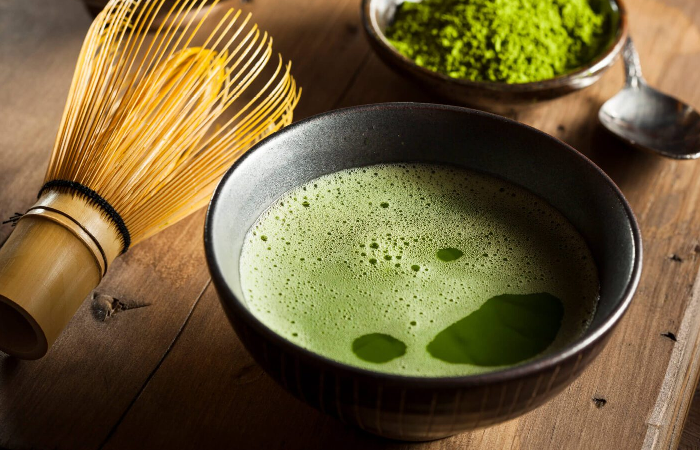
Tencha, the raw component in Matcha, is prepared by steaming and drying tea leaves grown by shielding direct sunlight without kneading. Tencha is deveined and destemmed after drying and powdered in a stone mill; this powder is Matcha.
All of our Matcha from Mie, Japan, is halal-certified by the Japan Halal Association (JHA), one of the JAKIM-recognized halal bodies.
Halal certification ensures that this product was prepared in accordance with Islamic Law, that it has no "forbidden" components, and that it has not come into touch with any contaminants.
Milk Caramel Morinaga: Morinaga's Milk Caramel sweet is another halal Japanese food that earns a spot on our list. We adore the bittersweet toffee's rich creaminess. This is the creamiest bittersweet caramel toffee you've ever tasted!
Unlike the other halal snacks on our list, this delight is ideal for an on-the-go snack. It also makes use of only Muslim-friendly components. So you can enjoy them without concern.
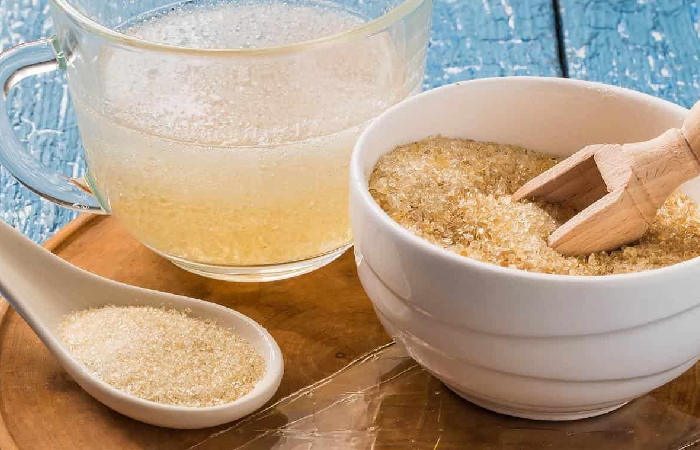
Halal Sushi At Home
Preparing halal sushi at home may be a gratifying and joyful experience. This is due to the fact that you have complete control over the ingredients and may verify that your meal is cooked in accordance with Islamic dietary rules.
Here's an Overview On Making Halal Sushi At Home:
Ingredients Required:
- Seaweed or Sushi Wrap
- Cook Thai rice or special sushi rice in a rice cooker.
- Vinegar, salt, sugar, and sesame oil (optional).
Fillings:
- Sliced smoked salmon, lengthwise
- Crab sticks from the grocery, briefly boiled and chopped, lengthwise
- Cucumber / avocado, thinly sliced
Preparation:
Take a medium-sized bowl. Put 1 teaspoon vinegar, 1/2 teaspoon salt, 1/2 teaspoon sugar, and 1 teaspoon sesame oil. Stir until completely dissolved. In a mixing dish, combine 2 scoops of hot cooked rice and toss till combined.
-
Put 1 piece of sushi wrap, place the rice dough, and flatten it on the seaweed leaf. Fillings, such as salmon or crab, can be blended with avocado or cucumber to taste.
-
Then roll it up and compress it. Repeat for another roll. To keep the rice warm, I prefer to prepare the rolls one at a time. Bamboo roll, which is available in Korea and Japan stores, can help with the rolling tool.
-
If you don't have any, you can use aluminum foil to roll and condense the rice. keep it at room temperature first, then place it in the refrigerator for a few minutes.
-
When it has slightly firm, slice it and place it on a dish. Sushi is finished and ready to be served with soy sauce dressing.
The Use Of Halal-Certified Ingredients.
Halal certification is a quality assurance method applied to Halal-compliant food products and services. This certification assures that our products are safe for Muslim consumption and use.
This Halal Institute accreditation verifies that products do not contain anything regarded illegal by Islamic law, and that they are produced, processed, transported, and stored using methods exempt from any item prohibited by the law. It also ensures that the items haven't come into contact with any other foods that don't fulfill these standards.
The use of such ingredients ensures that the food prepared using them meets all required halal standards and is absolutely fit for consumption by muslims and health conscious people across the world.
Tips For Ensuring All Ingredients And Preparation Methods Adhere To Halal Standards.
The Quran, Hadith, Ijma', and Qiyas are the origins of Islamic law.
Whatever food substances are specified in any of the foregoing sources, whether Halal (permissible) or Haram (forbidden), are understood as Islamic Law.
These Tips Can Be Followed To Ensure Halal Standards Of Ingredients And Preparation
- Make sure that your food adheres to islamic law
- Know the sources of foods and drinks
- Slaughtering of animals, Zabihah
- No Alcohol usage
- Presentation and storage
- Processing and cooking of food
- Hygiene
- Utilized Goods
- The Halal Certification(Permissible)
- Prepare your own Sushi
With these tips you can be sure that your sushi is halal.
Conclusion:
-
Many types of sushi are Halal, but it's always a good idea to double-check the ingredients.
-
While most seafood is Halal, specific ingredients such as mirin or sake, as well as certain types of seafood such as shellfish or fish without scales, are not.
-
The simplest way to secure Halal sushi is to look for a Halal certification. This accreditation certifies that the meal complies with all Islamic dietary regulations. It is typically displayed on product packaging or in restaurants.
-
Making your own sushi is another way to verify it is Halal. You have complete control over the ingredients and the preparation process this way.
-
Many Halal sushi recipes are available online to help you get started.
-
Sushi Zanmai, Sushi King, and Umi Sushi all offer halal certification to verify that their sushi is permissible under Islamic dietary regulations.
-
Sushi can be Halal with the right knowledge and preparation.
-
Tamago (Egg) Sushi, Vegetable Maki Rolls, Tuna or Salmon Nigiri are some vegetarian sushi options
-
You can explore more Halal Japanese dishes. The blog provides a lot of websites and halal certified bodies which provide halal food.
You can enjoy the pleasures of Japanese food without sacrificing your Islamic dietary requirements if you choose your ingredients and cooking methods carefully.
Additional Resources
Websites
- https://www.halaltimes.com/is-sushi-halal/
- https://www.sazentea.com/en/products/c21-matcha
- https://www.britannica.com/topic/ramen
- https://www.amuslima.com/halal-sushi-recipe/
*Halal Certification Bodies
- https://jhalal.com/en/
- https://www.halaltimes.com/jakim-publishes-updated-list-of-foreign-halal-certification-bodies/
- https://www.btsa.com/en/certificates/halal/
Communities
- https://www.halalbalkans.com/community-halal/
- https://www.instagram.com/wasabihalal/
- https://twitter.com/i/flow/login?redirect_after_login=%2FHalalCommunity_
Books
Halal Food: A History by Febe Armanios
The Halal Food Handbook by Muhammad M. Chaudry
Handbook of Halal Food Production by Kazi Zulkader Siddiqui
Halal and Zabihah Food: A Simple Guide by M. K. Johnston
Related Articles
https://www.thehalalplanet.com/middle-eastern-desserts-a-halal-culinary-journey/
https://www.thehalalplanet.com/basbousa-in-a-mug-microwave-friendly-single-servings/
https://www.thehalalplanet.com/10-minute-kunafa-parfaits-layers-of-crunch-and-creaminess/
https://www.thehalalplanet.com/quick-baklava-cups-bite-sized-treats-with-all-the-flavor/
https://www.thehalalplanet.com/exploring-halal-korean-bbq-a-culinary-journey/
https://www.thehalalplanet.com/is-tiramisu-halal-a-comprehensive-guide/
https://www.thehalalplanet.com/is-raising-canes-halal/
https://www.thehalalplanet.com/halal-mochi-ice-cream-recipe-a-delightful-treat-for-the-faithful/
https://www.thehalalplanet.com/how-to-make-kombucha-halal-perspectives-benefits-and-risks/
https://www.thehalalplanet.com/halal-diet-and-fitness/
https://www.thehalalplanet.com/halal-food-near-me-your-guide-to-halal-delicacies/
https://www.thehalalplanet.com/halal-and-kosher-practices/
https://www.thehalalplanet.com/halal-restaurents-in-birmingham/
https://www.thehalalplanet.com/what-does-halal-food-mean/
https://www.thehalalplanet.com/is-sushi-halal/
https://www.thehalalplanet.com/navigating-the-waters-of-halal-seafood-a-culinary-journey/
https://www.thehalalplanet.com/the-science-and-ethics-behind-halal-gelatin/
https://www.thehalalplanet.com/top-5-cities-for-halal-food-lovers-from-pizza-to-munchies
https://www.thehalalplanet.com/the-global-rise-of-halal-ice-cream/
https://www.thehalalplanet.com/halal-pizza-a-cultural-phenomenon-breaking-stereotypes/
Note: You can Copy the link and access in case of any issues

